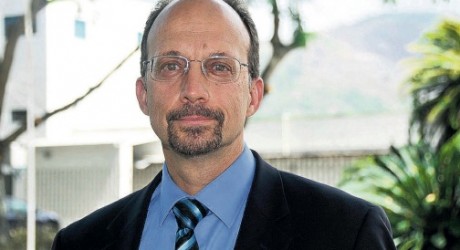The head of the Trinidad-based Caribbean Public Health Agency (CARPHA), Dr James Hosepdales, is predicting “with some degree of certainty” that regional countries will have a dengue type three epidemic to deal with next year.
Dr Hospedales told a Caribbean and Latin America panel discussion on regional coordination in responding to hazards and matters of security earlier this week that the epidemic is likely to be stronger.
“Dengue has been increasing in frequency and severity in the last 30 or so years,” he said, noting that another strain of the mosquito-borne viral infection is set to affect the region next year mainly because of continued personal neglectful treatment of their immediate environment by regional people.
“We can predict with some degree of certainty that next year, more probably 2018, the region will have a Dengue Type Three epidemic.”
He said that published information states that though the types may vary, they create the same effect of a high fever at 40 degrees centigrade, and are accompanied by two of the following symptoms: severe headache, pain behind the eyes, muscle and joint pains, nausea, vomiting, swollen glands, or rash. Symptoms usually last for two to seven days.
But Dr Hospedales noted that as a region, the Caribbean has been going through an abnormal spell with regards to viral infections.
“In the last few years we witnessed something unprecedented, almost. We’ve had a chikungunya epidemic in 2014, a brand (new) disease in a virgin population… We’ve had the threat of Ebola. This year we’re facing the Zika epidemic, the consequences of which are still playing out.”
But the CARPHA executive director said that Caribbean people must take some of the blame for the continued presence in their communities of disease-transmitting organism, such as the dengue-bearing aedes aegypti mosquito.
“The problem isn’t chikungunya, Zika or dengue, the problem is our comfort with the mosquito aedes aegypti, and multiplication of sites in which it can breathe,” Dr Hospedales said, adding that the onset of another round of dengue infections do not only spell personal discomfort for many across the region, but threatens the livelihood of the Caribbean.
“The fact that you have a vector that can so effectively transmit disease right across the population, is a health security threat, a tourism threat, an economic threat,” he said.














